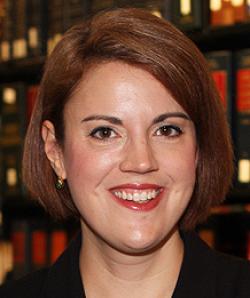Abstract
Who is responsible when a semi-autonomous vehicle crashes? Automobile manufacturers claim that because Advanced Driver Assistance Systems (ADAS) require constant human oversight even when autonomous features are active, the driver is always fully responsible when supervised autonomy fails. This Article argues that the automakers’ position is likely wrong both descriptively and normatively. On the descriptive side, current products liability law offers a pathway toward shared legal responsibility. Automakers, after all, have engaged in numerous marketing efforts to gain public trust in automation features. When drivers’ trust turns out to be misplaced, drivers are not always able to react in a timely fashion to re-take control of the car. In such cases, the automaker is likely to face primary liability, perhaps with a reduction for the driver’s comparative fault. On the normative side, this Article argues that the nature of modern semi-autonomous systems requires the human and machine to engage in a collaborative driving endeavor. The human driver should not bear full liability for the harm arising from this shared responsibility.
As lawsuits involving partial autonomy increase, the legal system will face growing challenges in incentivizing safe product development, allocating liability in line with fair principles, and leaving room for a nascent technology to improve in ways that, over time, will add substantial safety protections. The Article develops a framework for considering how those policy goals can play a role in litigation involving autonomous features. It offers three key recommendations, including (1) that courts consider collaborative driving as a system when allocating liability; (2) that the legal system recognize and encourage regular software updates for vehicles, and (3) that customers pursue fraud and warranty claims when manufacturers overstate their autonomous capabilities. Claims for economic damages can encourage manufacturers to internalize the cost of product defects before, rather than after, their customers suffer serious physical injury.
Keywords
semi-autonomous vehicle, partial autonomy, torts, shared responsibility, Advanced Driver Assistance Systems (ADAS)
Publication Date
2023
Document Type
Article
Publication Information
109 Iowa Law Review (forthcoming, 2023)
Repository Citation
Robertson, Cassandra Burke, "Litigating Partial Autonomy" (2023). Faculty Publications. 2188.
https://scholarlycommons.law.case.edu/faculty_publications/2188

